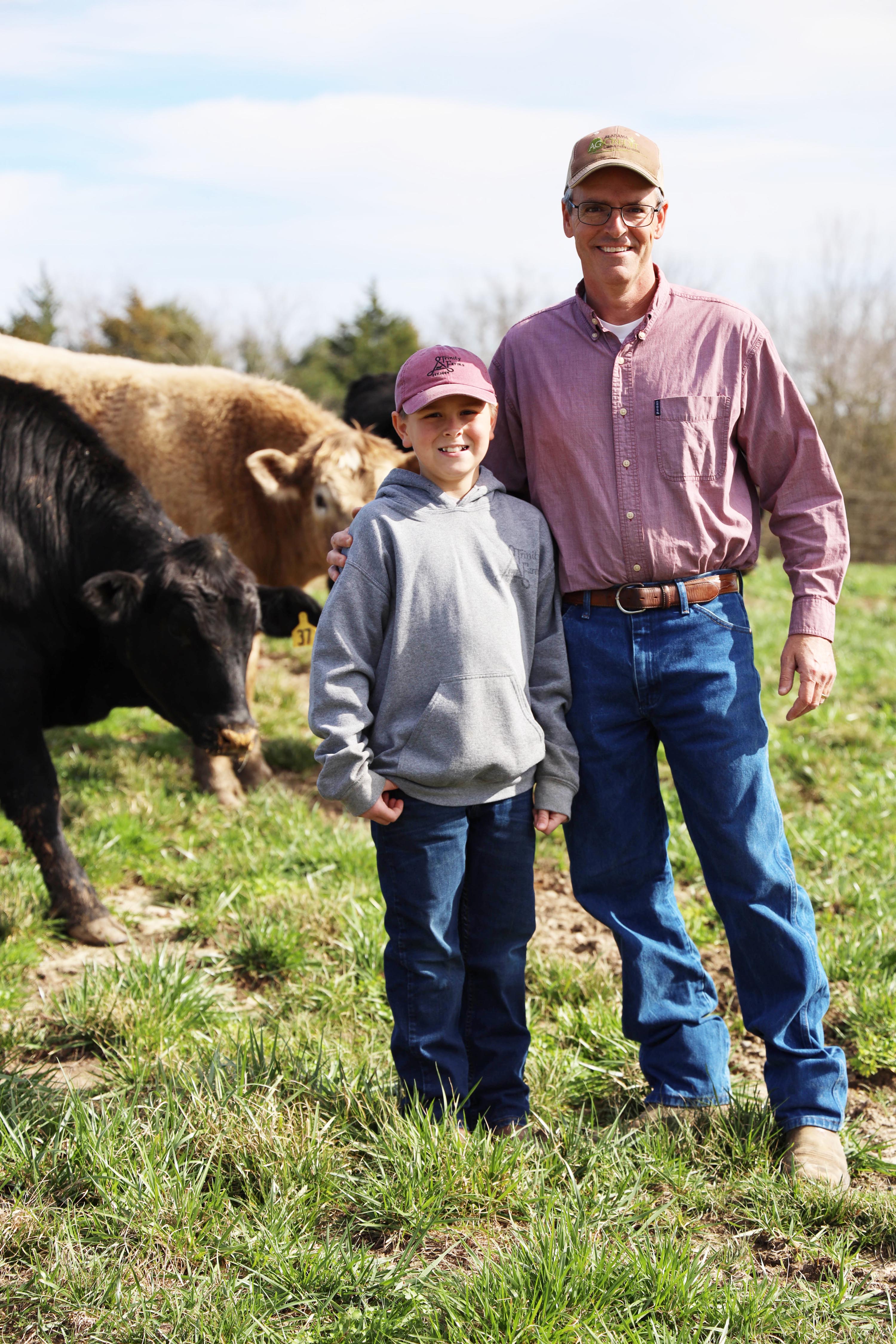
Written by Maggie Edwards, Alabama Farmers Federation
Farmers and timber landowners work with the future in mind.
“I love knowing that my three kids watch calves be born and see the fish grow every year,” said Hale County farmer Townsend Kyser. “Farming is a great way for me and my wife, Kelly, to raise Laura, Will and Sam. It allows them to see what it takes for this world to work. My hope is that they are proud to grow up on the farm.”
Farmers like Kyser use forward-thinking practices to reduce inputs, raise yields, produce healthy and sustainable products, and ensure their children have resources needed to steward the land, too.
“As the population continues to expand, it makes the job for farmers harder and harder,” said Kyser, an Alabama Farmers Federation State Catfish Committee member. “We have more people to feed and less land to do it on.”
In the early 1980s, growers in Alabama’s Black Belt Region started raising catfish. It’s become a thriving industry and secured family farms for the next generation.
Kyser is a third-generation catfish and cattle farmer who farms with his brother, Ashley, and father, Bill. Their family realizes the important role the fourth generation will play in feeding a growing world.
“We have spent a lot of time and money investing toward the future,” Kyser said. “We have tried to increase production so that if the fish industry stays viable, we can be a part of it. We have tried to rebuild our ponds, so we can be in the business forever.”
The Kysers invested in technology to put automated oxygen meters in every pond, which helps aerating paddlewheels run more efficiently. They also added oxygen probes and are rebuilding levees to alleviate issues.
Gleaning ideas about more efficient, sustainable growing practices is one reason Kyser and fellow farmer David Lee join grassroots organizations like the Federation.
Continuing education programs abound, too. Beef Quality Assurance teaches cattlemen best management practices; seasonal workshops help poultry farmers manage Alabama’s temperature swings; the Alabama TREASURE Forest Association helps landowners improve Alabama’s timber land; and pesticide applicator courses improve growing season success for row crop farmers.
The time and financial investment will pay dividends for years, said Lee, who serves on the Federation’s State Beef Committee.
“I love what I do because my kids love to jump in the truck and go with me to work cattle,” Lee said. “My kids are already thinking about ways to improve the operation.”
Lee and his wife, Julie, have four children — Savannah, Kaiya, Darah and Tucker. They own Trinity Farms, a custom meat operation where they direct-market animals.
“We invest in resources and infrastructure to keep our operation moving into a good direction to sustain our farm,” Lee said. “I believe my children are being set up with a successful foundation because of the work we do right now.”
Lee’s Lowndes County pastures are surrounded by timber — as is much of Alabama, which has 23 million acres of timber land.
Since the 1950s, Alabama forest landowners have planted more trees than they’ve cut. According to the Alabama Forest Inventory Analysis, 1.56 trees are planted for every tree harvested.
That’s a huge investment in the future, said Jackson County forester Scott Woodall.
“As a steward and resource professional, we have an obligation to practice sustainable forestry,” Woodall said. “Landowners own the land, but they are borrowing it from kids and grandkids. Without forest management, you don’t have that sustainability.”
Woodall helps operate his family business, WW Lumber, with support from wife Angie, son Adrian and daughter Megan.
“Landowners are proactive in their approach to sustainability,” Woodall said. “We have streamside management zones that try to mitigate disturbance around streams and creeks. We do not want to hurt water quality.”
That sustainability-centric mindset fuels agriculture and forestry — and leaders like Kyser, Lee and Woodall see the benefit in protecting resources for future generations.
“Stewardship comes from attachment to the land,” Woodall said. “It is important to work hard and carry out that legacy for years to come.”
Down to Earth partners include the Alabama Agribusiness Council, Alabama Association of RC&D Councils, Alabama Cattlemen's Association, Alabama Cooperative Extension System, Alabama Department of Agriculture & Industries, Alabama Farmers Federation, Alabama Forestry commission, Alabama Poultry & Egg Association and Sweet Grown Alabama.
Visit DownToEarthAL.com to learn more. Interact with @DowntoEarthAL on Facebook, Instagram and Twitter

